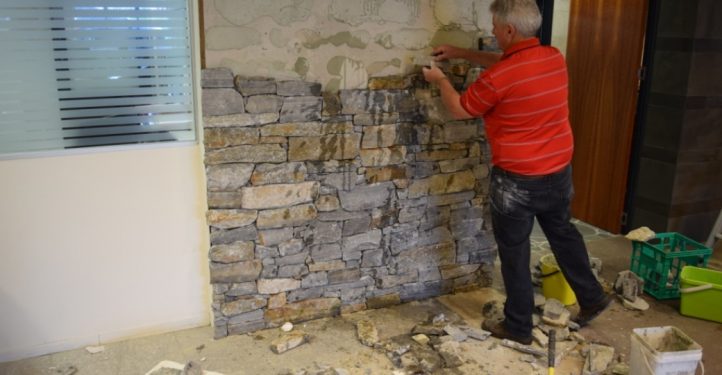
Although granite stone pavers are incredibly durable, they aren’t completely impervious to damage. Some forms of damage are more common than others, but the end result detracts from the appearance of your pavers and can even make them dangerous in some cases.
Below, we have taken a closer look at the 7 most common forms of damage and how to prevent them:
• Stains
Although granite is quite resistant to stains, liquids (including water) can cause discolouration if they’re allowed to soak in. Oils, fruit juices and wines are the biggest culprits. The best way to prevent staining is to seal your pavers to provide a barrier (and regularly reseal them), as well as wiping up any spills immediately.
• Etching
This is a chemical reaction that occurs when granite is exposed to acids (such as vinegar, fruit juices, soft drink, wine or ammonia). It’s a dulling of the surface that can actually look like a stain. The best way to prevent etching is to seal the pavers and avoid the use of common household cleaners (as many contain corrosive or acidic ingredients).
• Impact Damage
Whilst this stone is certainly very hard, an impact from a heavy object could still cause it to chip. Depending on the colour you’ve selected, the chips may not be obvious but they can certainly be felt. The best way to prevent impact damage is, of course, to avoid dropping anything heavy on the surface (more easily said than done).
• Hazing
A cloudy or hazy appearance isn’t typically the result of actual damage – more often than not, it’s a result of using the wrong cleaning product and it’s eating into the surface of the stone or it’s left behind a film. The best way to prevent hazing is to clean the surface regularly and wipe it dry to prevent streaking and water spots.
• Cracks
It’s extremely unlikely that granite stone pavers will crack during normal use. Most cracks are actually the result of stress during handling, fabrication or installation. Placing a very hot object on the surface has, however, been known to cause cracks. The best way to prevent cracks is to make sure that it’s all laid by a skilled professional.
• Heat Damage
Although granite is very heat resistant, it can still be damaged when hot objects are placed directly on top. This is because the sealant and finish are nowhere near as heat resistant. The best way to prevent heat damage is, of course, to avoid placing anything hot onto the pavers. If you must, always put down hot pads or trivets first.
• Scratches
The only objects capable of causes scratches to granite are materials that are harder than the stone itself (such as sapphire, topaz and diamond). What might appear like a scratch in the surface could actually be etching. The best way to prevent scratches is to avoid sliding any jewellery that contains precious stones across the surface.
If you are concerned about protecting your granite stone pavers from damage, we hope that you’ve found the information shared above useful. As you can see, there are myriad ways that your pavers could become damaged – even though granite is incredibly durable – so prevention is the key. You can also speak with your stone supplier if you require more information.